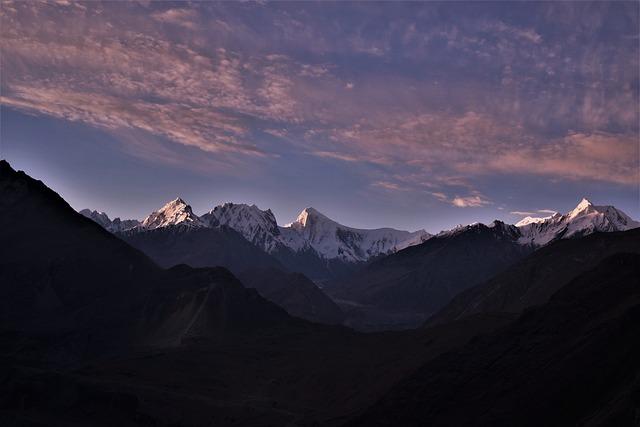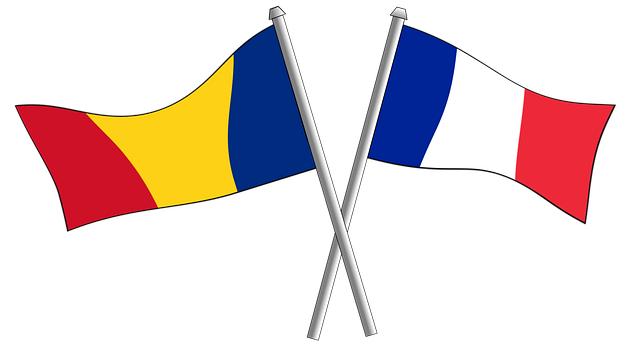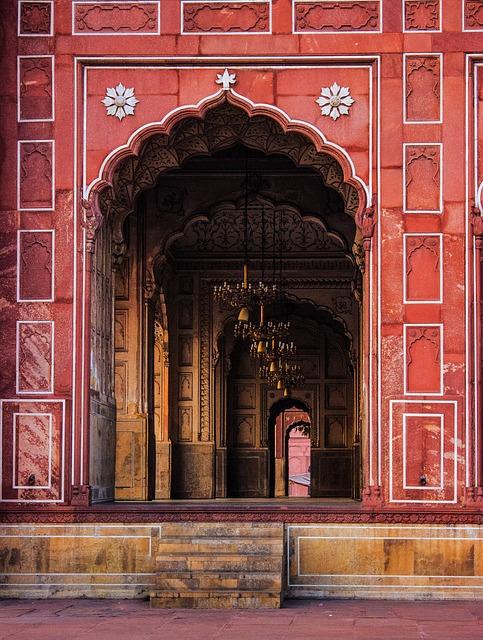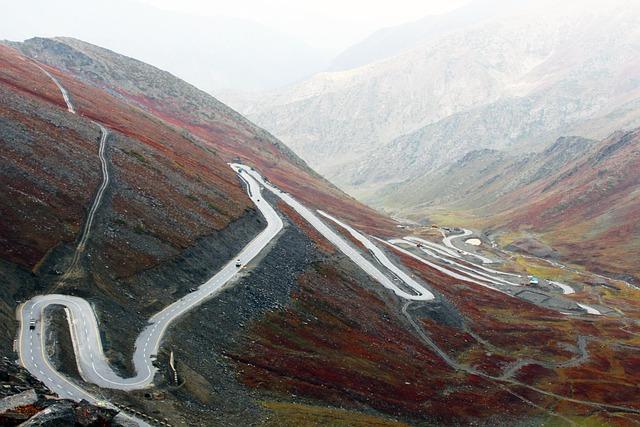In the intricate tapestry of international relations, few nations weave a narrative as complex and multifaceted as Pakistan. Nestled at the crossroads of South Asia, Central Asia, and the Middle East, Pakistan’s strategic geographical location positions it as a pivotal player in a world increasingly defined by shifting alliances and geopolitical calculations. Amidst the backdrop of evolving global dynamics, Pakistan’s role transcends mere geography; it embodies a rich heritage of diplomacy, conflict, and cooperation. As the globe grapples with pressing challenges—be it climate change, regional security, or economic interdependence—understanding Pakistan’s contributions and ambitions becomes crucial. This article delves into how Pakistan has navigated its unique position to influence international relations, shaping not only its own destiny but also that of the broader world stage. Join us as we explore the historical context, the key players involved, and the implications of Pakistan’s actions on global diplomacy and security.
Shaping Alliances: Pakistans Strategic Engagements in the Global Arena
In the intricate web of global diplomacy, Pakistan has emerged as a pivotal player, adeptly navigating alliances that strengthen its strategic position. The country’s relationships with major powers exhibit a keen awareness of changing geopolitical dynamics. By fostering cooperation with various nation-states, Pakistan endeavors to enhance security, trade, and cultural ties. Notably, its partnerships with China, particularly through the China-Pakistan Economic Corridor (CPEC), symbolize a robust alignment that not only fuels economic growth but also counters regional tensions. Furthermore, Pakistan’s engagement with the Islamic world, spearheaded through organizations like the Organization of Islamic Cooperation (OIC), reinforces its commitment to shared religious and strategic interests.
Moreover, Pakistan’s efforts extend to engaging key global forums where critical issues such as climate change, counter-terrorism, and sustainable development are addressed. These diplomatic pursuits not only showcase the country’s resilience but also reflect its adaptability in a rapidly evolving landscape. To illustrate, the following table summarizes Pakistan’s strategic engagements and their potential impact:
| Engagement | Partner Country/Organization | Key Focus Areas |
|---|---|---|
| CPEC | China | Infrastructure, Energy |
| OIC | Islamic Countries | Security, Unity |
| UN Peacekeeping | Global | Peace, Security |
This strategic engagement strategy not only amplifies Pakistan’s voice in international affairs but also positions it as a critical bridge-builder among nations, fostering dialogue and collaborative solutions to shared challenges.

Navigating Challenges: Pakistans Diplomatic Initiatives in Conflict Zones
In its quest to play a pivotal role on the global stage, Pakistan has strategically positioned itself as a mediator and facilitator in conflict zones. This involves not only cultivating relationships with neighboring countries but also seeking partnerships with international organizations to address regional instability. The nation’s diplomatic initiatives are guided by a commitment to peace-building, dialogue, and mutual respect, which serve as the cornerstone of its foreign policy. Through initiatives such as facilitating peace talks and hosting dialogues among conflicting parties, Pakistan demonstrates its ability to act as a bridge, promoting understanding and addressing grievances.
Furthermore, Pakistan has engaged in a series of informative diplomatic missions with various stakeholders, enabling a pragmatic response to evolving crises. These efforts include:
- Establishing communication channels with militant groups for de-escalation.
- Participating in international conferences aimed at conflict resolution.
- Offering humanitarian assistance in regions affected by warfare.
By leveraging its geographical significance and historical ties to various nations, Pakistan is shaping itself as a pivotal player in international diplomacy. The following table highlights key diplomatic initiatives undertaken by Pakistan in recent years:
| Year | Initiative | Outcome |
|---|---|---|
| 2020 | Talks with Afghanistan | Increased cooperation in counter-terrorism efforts |
| 2021 | Hosting Syrian peace discussions | Strengthened ties with Middle Eastern nations |
| 2022 | Humanitarian aid to Yemen | Improved Pakistan’s image in the region |

Economic Diplomacy: Leveraging Trade and Investment for Global Influence
In a rapidly changing global landscape, Pakistan is strategically positioning itself as an influential player through economic diplomacy. By enhancing its trade agreements and diversifying its foreign investment portfolio, the country is not just improving its economic standing but also reinforcing its geopolitical influence. Key initiatives include:
- Strengthening Bilateral Trade Relations: Actively engaging with neighboring countries and key global powers to foster mutual trade benefits.
- Investment in Infrastructure: Attracting foreign investment through projects like the China-Pakistan Economic Corridor (CPEC), which not only boosts the economy but also facilitates international trade routes.
- Participating in Global Supply Chains: Positioning itself as a hub for manufacturing and logistics, tapping into global markets.
Moreover, Pakistan’s approach to economic diplomacy extends beyond mere commercial interests. By promoting cooperative frameworks and regional integration, the nation aims to create a balanced international environment that addresses both economic and security concerns. The impact of these efforts is reflected in:
| Key Partnerships | Focus Areas |
|---|---|
| China | CPEC, Trade with ASEAN |
| Central Asian Republics | Energy Corridors, Trade Agreements |
| Saudi Arabia | Investment in Oil and Energy |
This multifaceted engagement not only enhances Pakistan’s economic resilience but also cements its status as a pivotal actor in shaping regional and global dynamics.

Future Directions: Recommendations for Enhancing Pakistans Role in International Relations
To enhance Pakistan’s influence in international relations, it is crucial to focus on strengthening diplomatic ties and regional cooperation. This can be achieved by:
- Engaging in Multilateral Forums: Actively participating in organizations such as the UN, SAARC, and the Shanghai Cooperation Organization to build coalitions and share Pakistan’s perspective on global issues.
- Promoting Economic Diplomacy: Leveraging trade agreements to foster economic relationships that elevate Pakistan’s status as a key player in regional and global markets.
- Cultural Exchange Programs: Expanding educational and cultural exchanges to build people-to-people connections that enhance mutual understanding and respect.
Moreover, enhancing soft power can significantly contribute to Pakistan’s international standing. Efforts should be made to:
- Showcasing Cultural Heritage: Utilizing cultural festivals and exhibitions to share Pakistan’s rich history and diversity with the world.
- Innovating in Media Outreach: Crafting compelling narratives around Pakistan’s achievements and contributions through global media platforms.
- Investing in Humanitarian Initiatives: Leading international humanitarian efforts can exhibit Pakistan’s commitment to global welfare and foster goodwill.
In Conclusion
In a world increasingly characterized by intricate interdependencies and shifting alliances, Pakistan’s role in shaping the global international relations landscape emerges as both significant and multifaceted. As a nation positioned at the crossroads of East and West, its contributions—rooted in historical context, geopolitical strategy, and economic aspirations—remain essential to understanding contemporary global dynamics.
As we navigate the complexities of diplomacy, security, and development, Pakistan’s evolving position speaks volumes about the delicate balance of power in a rapidly changing world. The nation’s ability to foster dialogue, confront challenges, and build partnerships serves as a reminder of the integral role that smaller states can play on the world stage.
Ultimately, the story of Pakistan is not just about its own trajectory; it reflects the broader narrative of global engagement and cooperation. As this narrative continues to unfold, Pakistan’s influence will undoubtedly ripple through the corridors of international relations, highlighting the necessity of collaboration in addressing the shared challenges that transcend borders. In the grand tapestry of global affairs, every thread counts—where each nation, including Pakistan, contributes to a more interconnected and dynamic world.



